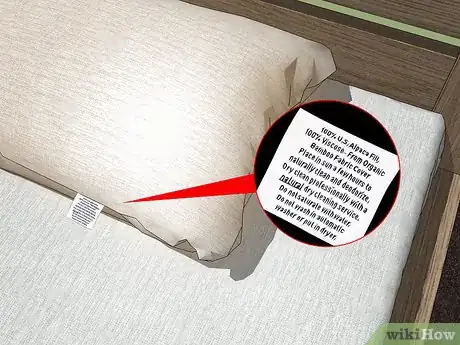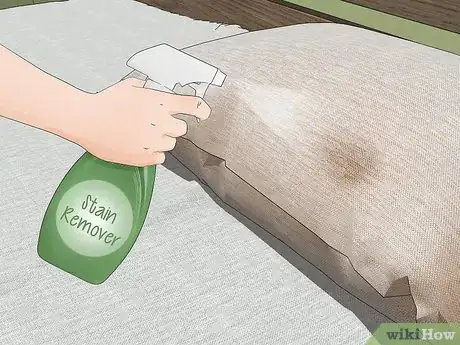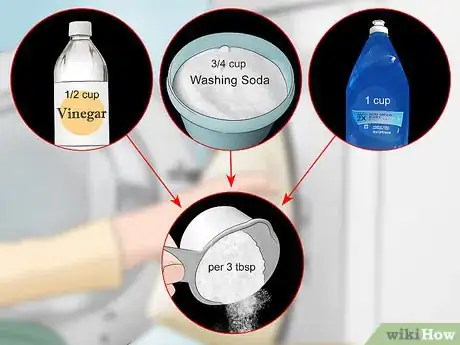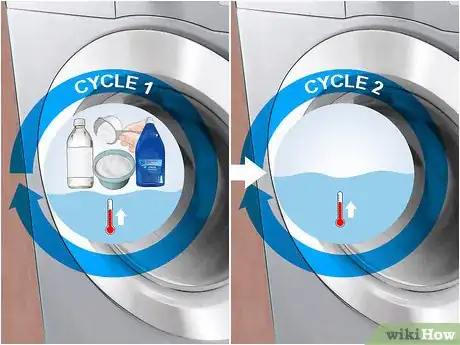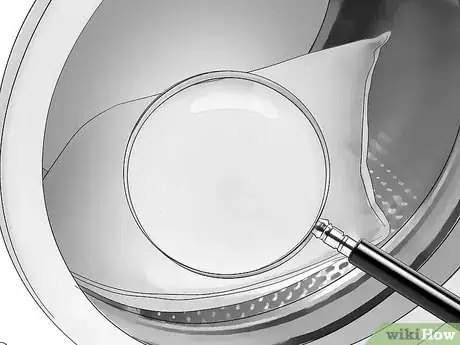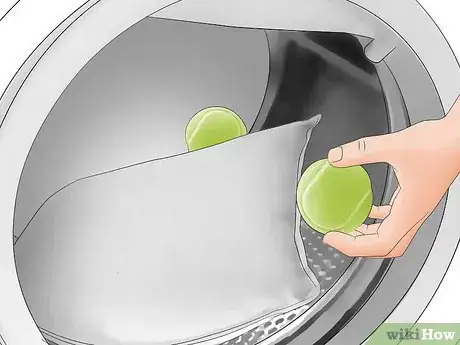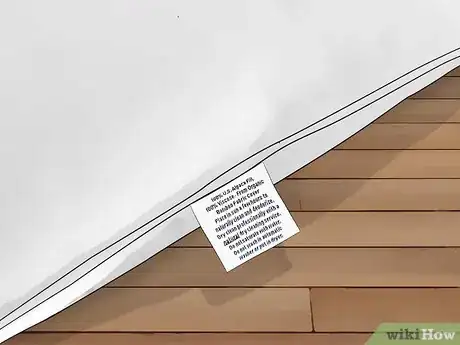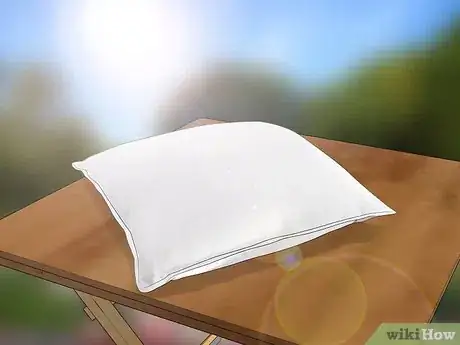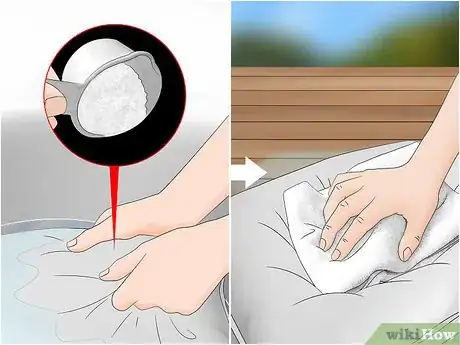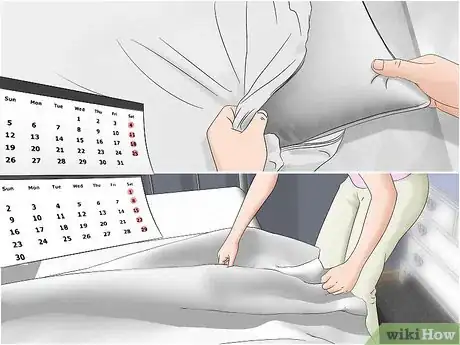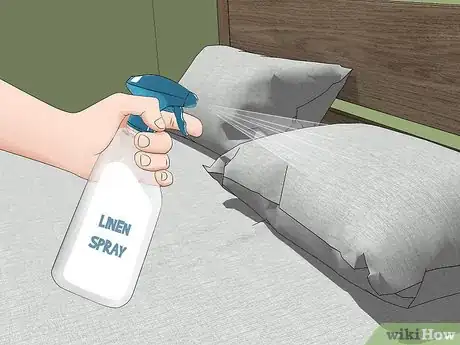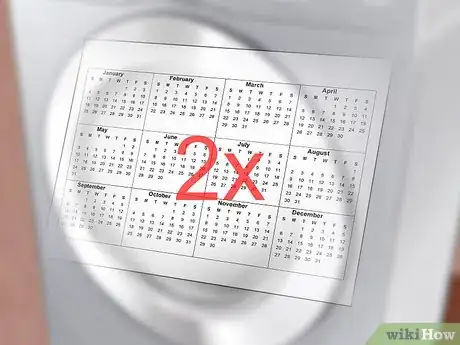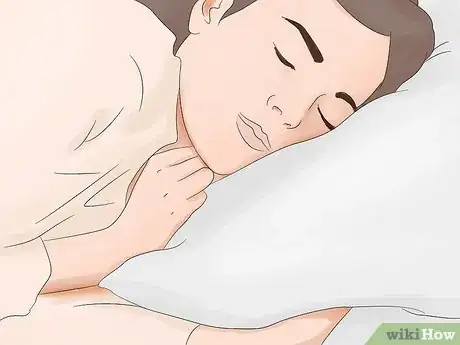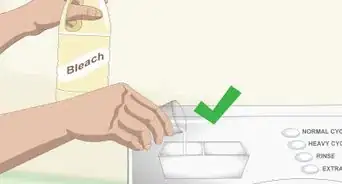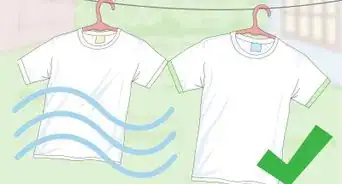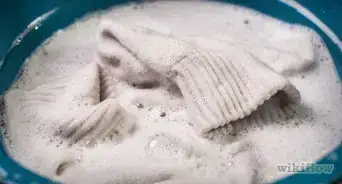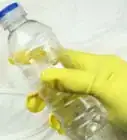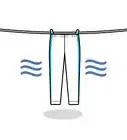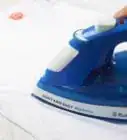This article was co-authored by Safir Ali. Safir Ali is the Co-Founder and CEO of Hamper Dry Cleaning and Laundry, a startup in Houston, Texas reinventing the laundry industry. With over six years of experience launching and operating Hamper, Safir specializes in innovative ways to simplify dry cleaning using the experience from his family's business. Safir holds a Bachelor’s degree in Business Administration and Management from Texas A&M University. Hamper offers 24/7 on-demand dry cleaning and laundry through delivery and kiosk services. Hamper has been featured on the Houston Rockets, Station Houston, the Houston Business Journal, BBVA, Yahoo Finance, and Innovation Map.
There are 7 references cited in this article, which can be found at the bottom of the page.
This article has been viewed 165,111 times.
Pillows are among the most-used objects in your home. Every night, you use a pillow (or three) to cushion your head, leaving behind hair, dead skin, and more, including makeup, sweat, and dirt. As you can imagine, over time, these things begin to build up, leading to once-pristine pillows turning yellow. While you could toss your yellowed pillows in favor of new ones, you can whiten and breathe life back into old, yellowed pillows by washing, treating, and maintaining them.
Steps
Machine Washing Your Pillows
-
1Check care tags. As a basic rule of thumb, always check care tags before laundering something. While most pillows are machine washable, some might require dry clean or spot cleaning only, as either the fabric or the pillow’s filling will degrade in the wash.[1]
- Although you could forego the manufacturer’s instructions and machine wash your pillows anyway, this will void any warranties you might have on your pillows, and could even leach toxic water, in the case of some foam pillows.
-
2Spot treat any stains. Pillows are prone to staining due to sweat, dirt, and makeup, primarily, although oils and food stains often find their way onto pillows. Before you toss your yellowed pillows into the washer, spot treat any small stains, using a standard stain removal spray, or a paste of baking soda and water.[2]
- Be sure to spot-treat your pillows before putting them in the wash, so you can loosen the stain beforehand and get as much off of it as you can.[3]
Advertisement -
3Wash pillows in a mixture of vinegar, washing soda, and detergent. Instead of laundering your pillows only in your standard detergent, run a load with your standard detergent, as well as vinegar, washing soda, and dishwasher detergent.[4]
- Use 1 C (8 oz) of dishwasher detergent, ¾ C (6 oz) washing soda, and ½ C (4 oz) of vinegar for every 3 tablespoon (44.4 ml) of regular laundry detergent you use. This mixture was formulated to wash two pillows.
- If you only have distilled white vinegar, use a solution of one part white vinegar and one part warm water.[5]
-
4Run a second cycle with just hot water. The mixture above can be thick and grainy, and may adhere to pillows without a thorough rinse. After you’ve run a cycle with the mixture, run a second cycle with only hot water, or hot water and ½ C (4 oz) of vinegar. This will remove any remaining detergent, and will give your pillows a quick sanitizing session.[6]
-
5Check for color. Remove your pillows from the washer, and check to see if the color has improved. If not, you can place the pillow(s) back into the washer, this time running a load with approximately ¼ C (2 oz) of peroxide as a safer bleach solution.
- If the pillow is still yellow following this procedure, the color may not be salvageable. If the color is the only issue, and the pillow does not smell of mildew, mold, or sweat, you can simply place it in a pillowcase to hide its unsightly color.
- If the pillow persists in having an odor, it is time for a new pillow.
-
6Place in dryer with tennis balls. Once clean, your pillows should be placed in a clean dryer on the “air dry” setting, with tennis balls thrown in. The tennis balls will “punch” the pillows as they dry, creating a more even dry cycle and giving your pillows a chance to fluff up.[7]
- Using tennis balls alone may result in a rubbery smell on your pillows. If this is the case, or you are sensitive to smell, you can wrap the balls in socks or an old shirt to mask the smell.
Hand Washing Your Pillows
-
1Adhere to care tags. If you have a down or memory foam pillow, do not ignore the warnings printed on the label, as the materials in these pillows are not water safe. Instead, use spot treatments alone. If this is the case, you can treat stains using a paste of baking soda and water, or spray vinegar to eliminate odor.
-
2Place pillows in the sun. Because you cannot use a washer, get creative with your pillow whitening. Set yellowed down or microfiber pillows in a sunny window to lighten them, apply bleach or vinegar using a small toothbrush, or apply baking soda to the pillow to soak up dampness and odor.[8]
-
3Put microfiber pillows in a basin with warm water and gentle detergent. Squeeze your pillow 3-7 times, allowing the detergent to work its way through all of the material, then rinse under cool water and squeeze to dry.
- Do not wring your pillow, as this can damage the memory foam and tear the netting holding the foam in place.
Maintaining Clean Habits
-
1Change pillowcases and bedding once per week. To keep your pillows in prime working condition, change your pillowcases and bedding at least once per week. If the bed’s owner is prone to sweating, bedwetting, or wearing makeup to bed, change the sheets and pillowcases twice per week.
- Keep at least two sets of sheets on hand--one on your bed, and one at the ready when laundry day rolls around. Regularly rotating your sheets will keep your mattress and pillows clean, and will help your sheets last longer.
-
2Use linen spray. To keep your pillow smelling fresh and clean, use linen spray in between washes. Many linen sprays are made from safe, fresh ingredients such as witch hazel or essential oils, many of which can be tailored to suit your preferences. A quality linen spray will keep mold and mildew at bay.
- Linen sprays can double as sleep aids; a spray using lavender or cedarwood oil, for instance, may help you relax and get to sleep.
-
3Machine wash pillows at least twice per year. Some experts recommend machine-washing your pillows every 3 months, but all agree that pillows should go no longer than 5-6 months before getting a thorough cleaning. Washing your pillows regularly will help prevent yellowing and buildup.[9]
- The number of times you clean your pillows will, again, depend on your body’s natural composition and your sleep habits. If you are prone to sweating during the night, your pillows will need more frequent washings.
- If you often go to sleep without cleaning your face and hair, you may need to wash your pillows even more frequently, such as every two months.
-
4Go to bed with a clean face and hair. Although you do not have to shower each and every night, quickly washing your face and brushing your hair will help prolong the life of your pillows and pillowcases. Many cosmetic ingredients are harsh and can not only discolor fabric, but also break fabric down.[10]
- Sweat and oils from your face and hair are inevitable, but their effects can be minimized with a simple cleaning routine each night. Even doing something as simple as splashing water on your face and tying your hair back can extend your pillows’ life.
Expert Q&A
Did you know you can get expert answers for this article?
Unlock expert answers by supporting wikiHow
-
QuestionHow do I get my pillows white again?
 Safir AliSafir Ali is the Co-Founder and CEO of Hamper Dry Cleaning and Laundry, a startup in Houston, Texas reinventing the laundry industry. With over six years of experience launching and operating Hamper, Safir specializes in innovative ways to simplify dry cleaning using the experience from his family's business. Safir holds a Bachelor’s degree in Business Administration and Management from Texas A&M University. Hamper offers 24/7 on-demand dry cleaning and laundry through delivery and kiosk services. Hamper has been featured on the Houston Rockets, Station Houston, the Houston Business Journal, BBVA, Yahoo Finance, and Innovation Map.
Safir AliSafir Ali is the Co-Founder and CEO of Hamper Dry Cleaning and Laundry, a startup in Houston, Texas reinventing the laundry industry. With over six years of experience launching and operating Hamper, Safir specializes in innovative ways to simplify dry cleaning using the experience from his family's business. Safir holds a Bachelor’s degree in Business Administration and Management from Texas A&M University. Hamper offers 24/7 on-demand dry cleaning and laundry through delivery and kiosk services. Hamper has been featured on the Houston Rockets, Station Houston, the Houston Business Journal, BBVA, Yahoo Finance, and Innovation Map.
Laundry Specialist Make a solution of one part distilled white vinegar and one part warm water. Don't submerge the pillow in it, but rub and scrub the surface of the pillow itself with the solution. You can also use a detergent specifically made for white garments that are discoloring. After loosening any stains, then toss the pillow in the wash.
Make a solution of one part distilled white vinegar and one part warm water. Don't submerge the pillow in it, but rub and scrub the surface of the pillow itself with the solution. You can also use a detergent specifically made for white garments that are discoloring. After loosening any stains, then toss the pillow in the wash.
Warnings
- Avoid harsh chemicals such as bleach and ammonia. Although both are great whiteners, both are classified as potentially harmful to humans, and should not be inhaled each night as you sleep.⧼thumbs_response⧽
References
- ↑ Safir Ali. Professional Dry Cleaner. Expert Interview. 15 September 2020.
- ↑ http://www.apartmenttherapy.com/tips-tricks-how-to-spot-clean-mattresses-and-bedding-apartment-therapys-home-remedies-201681
- ↑ Safir Ali. Professional Dry Cleaner. Expert Interview. 15 September 2020.
- ↑ http://www.picklee.com/2014/03/17/clean-whiten-yellow-pillows-diy-solution/
- ↑ Safir Ali. Professional Dry Cleaner. Expert Interview. 15 September 2020.
- ↑ http://housewifehowtos.com/do-laundry/how-to-clean-grimy-pillowcases/
- ↑ http://www.picklee.com/2014/03/17/clean-whiten-yellow-pillows-diy-solution/
- ↑ http://www.housecleaningcentral.com/en/cleaning-tips/bedrooms/how-to-clean-memory-foam-pillow.html
- ↑ http://www.huffingtonpost.com/2015/09/16/when-to-replace-pillow-gross_n_5628180.html
About This Article
To whiten your yellowed pillows, try washing them with vinegar and detergent. Just add 1 cup of dishwasher detergent, 1/2 cup of vinegar, 3/4 cup of washing soda, and 3 tablespoons of laundry detergent to your washing machine. Then, put your pillows in the machine and run the washing cycle. Once the cycle is complete, run another cycle with water to rinse your pillows. If this fails to improve their color, return the pillows to the machine and run a load with 1/4 cup of peroxide, which is a safe bleaching solution. If your pillows need to be hand washed, try applying vinegar or bleach with an old toothbrush to any yellow areas. Alternatively, simply leave your pillow in the window for several hours so the sunlight can lighten the color naturally. For tips on how to keep pillows clean and stop them from yellowing, read on!
